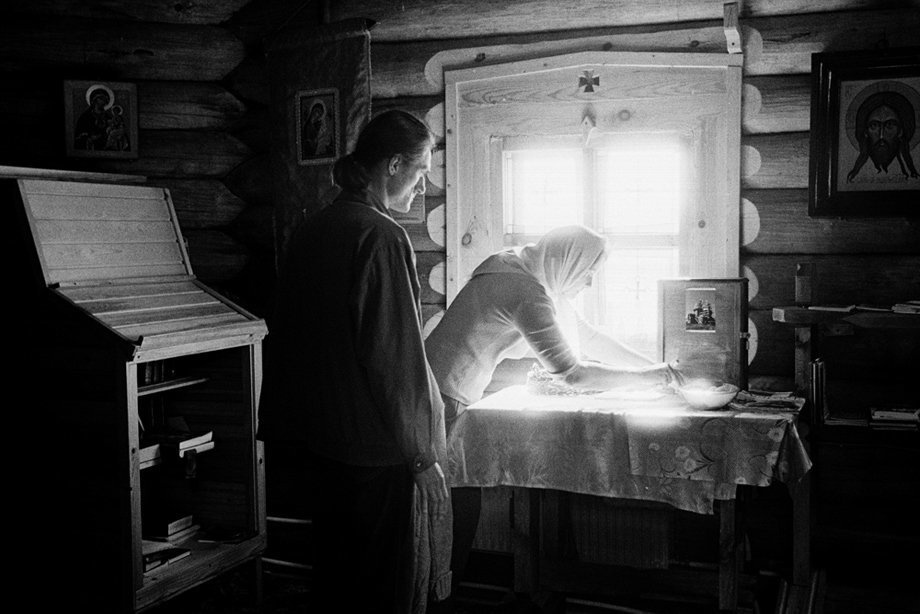January 28, 2020
1) Your relationship with photography, how does it begin?
I grew up in a small suburb of Moscow. I started to take up photography at the age of 12, went to courses at the «House of Pioneers». We had a great teacher, Viktor Nikolaevich. He taught us to see light and stories in simple everyday things. Then we'd close in the lab and print pictures. I remember his birthday and we gave him two packs of fixation. He was happy.
In 1994, I gave up this hobby and went to study as an editor and journalist. But with the children, I remembered the film photography. When I moved to Germany, I realized that I really do not want to lose touch with Russia. I started traveling around the Russian province with my camera, writing notes and publishing photos. So a hobby became my job.
2) Why your interest in photographing real-life people, in their own contexts?
I'm a documentary photographer, I like to take pictures of life as it is. No making things up, no staging. I tell the stories of ordinary people from half forgotten, half dead Russian villages. It is a rapidly departing nature, another ten or twenty years and a Russian village in its patriarchal sense will cease to exist. I understand that I have time to capture what's left of it. That's why I don't consider myself in the right to invent something — I can only document it. And I write stories too.
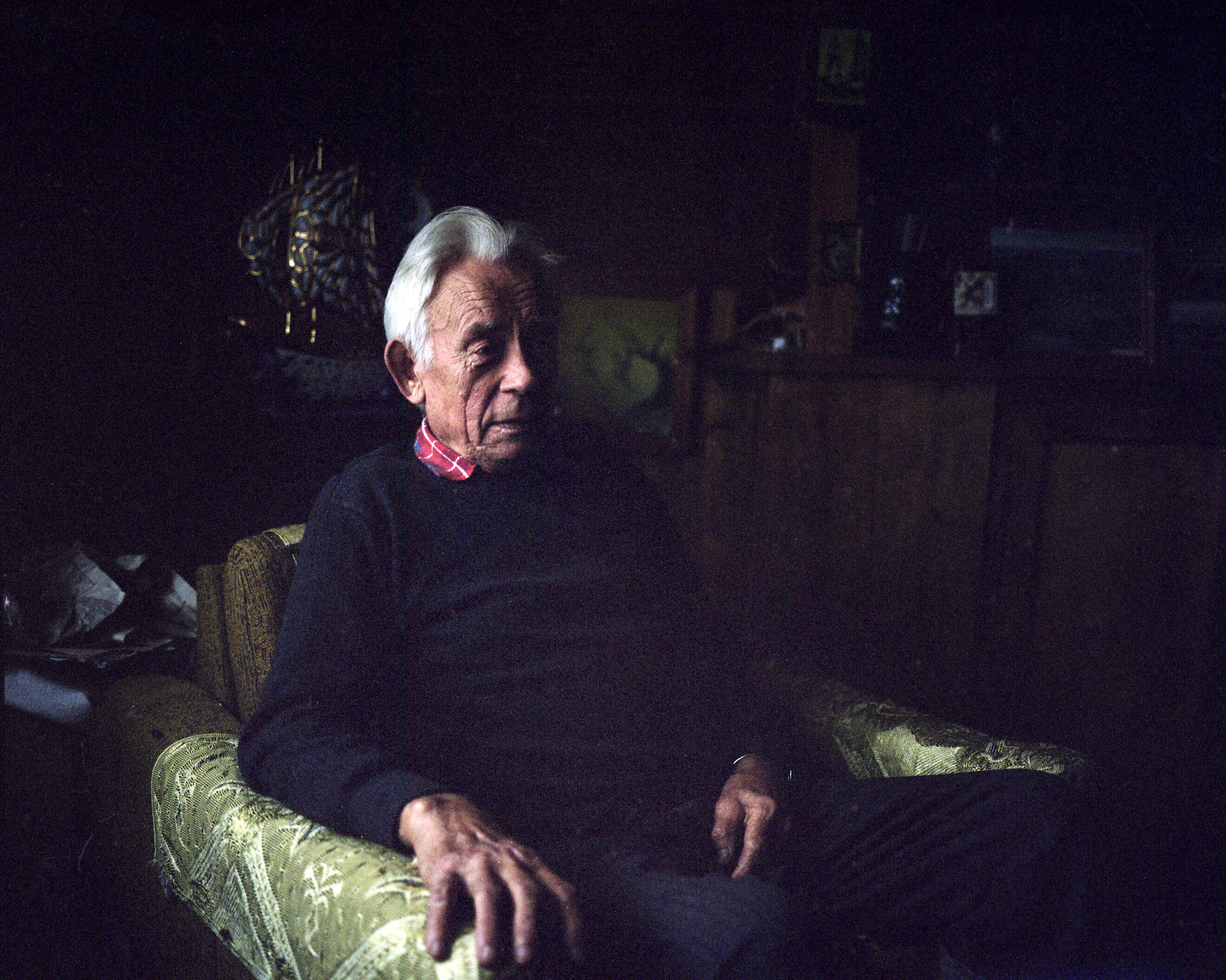
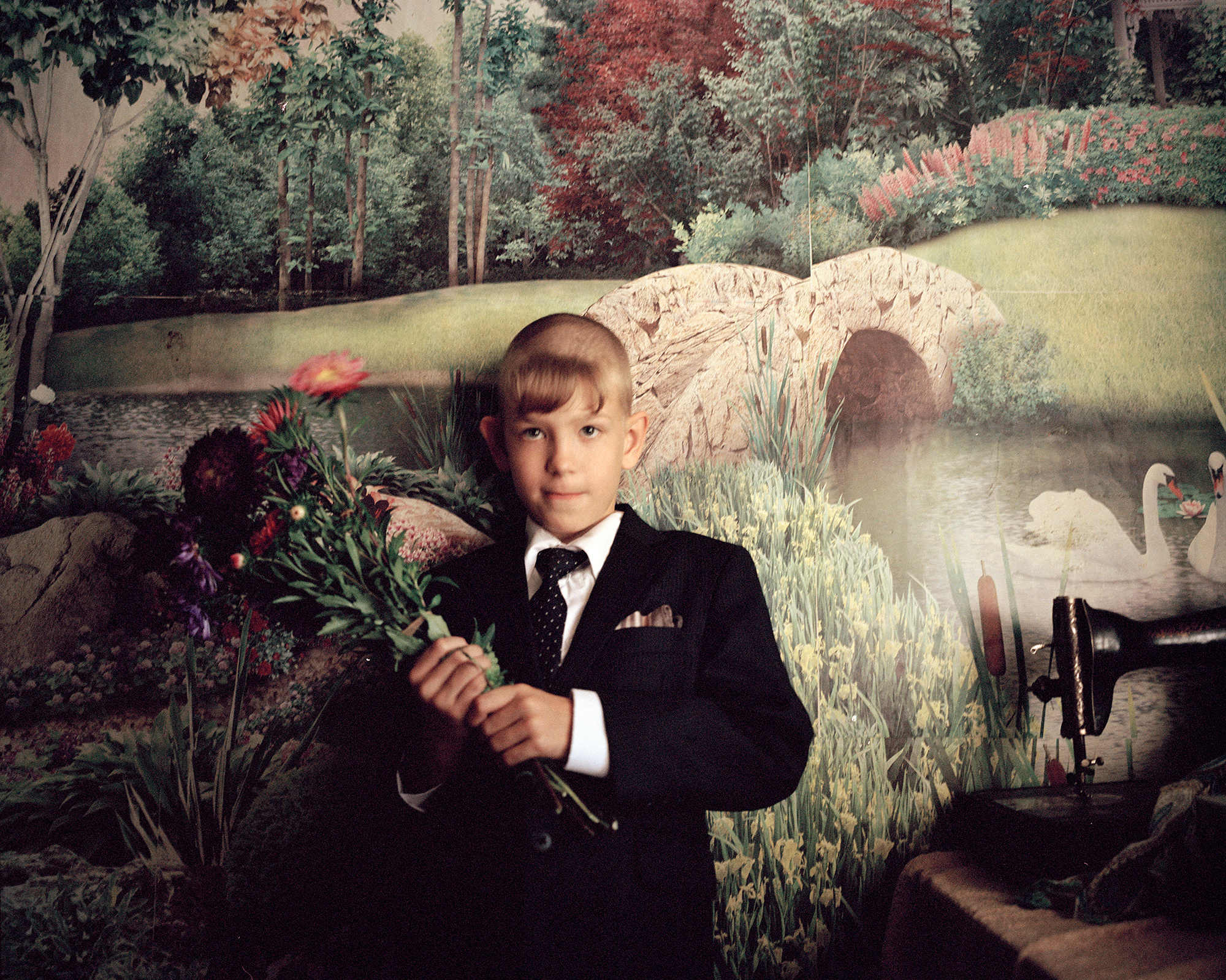
3) Tell us something about the stories of the people portrayed in
the selected photo albums for APB_Photography, Art Palm Beach 2020?
These
portraits are from my long-term project about Tver Karels. Karels first
appeared in the Tverian region after the Russian defeat in the
Russo-Swedish war (1610–1617). Under Swedish rule, residents of Ingria
and Korelian isthmus were forced to convert from the Orthodox religion
to Protestantism. This together with famine and disease led to an
exodus. By 1670 about 25–30 thousands of orthodox Karels found shelter
in Russian lands. I was fascinated that more than 300 years after moving
from Karelian isthmus to Tver region, they still preserved their
language and culture. But what is sad is that the generation of today’s
50–60 year-olds is the last one that can still fluently speak the
language. And that means that in 30 years karelian language might
completely disappear in Tver region.
My story is an attempt
to sort out what is left from the Karelian originality, to understand
whether Karels still consider themselves as a nation, and if they do,
how is it shown».
The portraits depict four representatives of Tver Karelians. They are
all residents of villages located 300 kilometers from Moscow. All of
them speak Karelian.
A former electrician, Sergei, 25 years old, burned his hands with an electric shock. But he did not give up, and now his life in the village is good — he got married, built a big house, goes hunting and fishing, plays football. Tatiana, a librarian, loves her work and was happy to show us books in Karelian. The writer Nikolay Balakirev is a former captain of a submarine. He knows many funny and sad stories from the life of Karelians. And 86-year-old Anna Belyakova keeps a flock of sheep, horse named Angelica, in her house cozy and warm. She told me about her childhood, that was very hard.
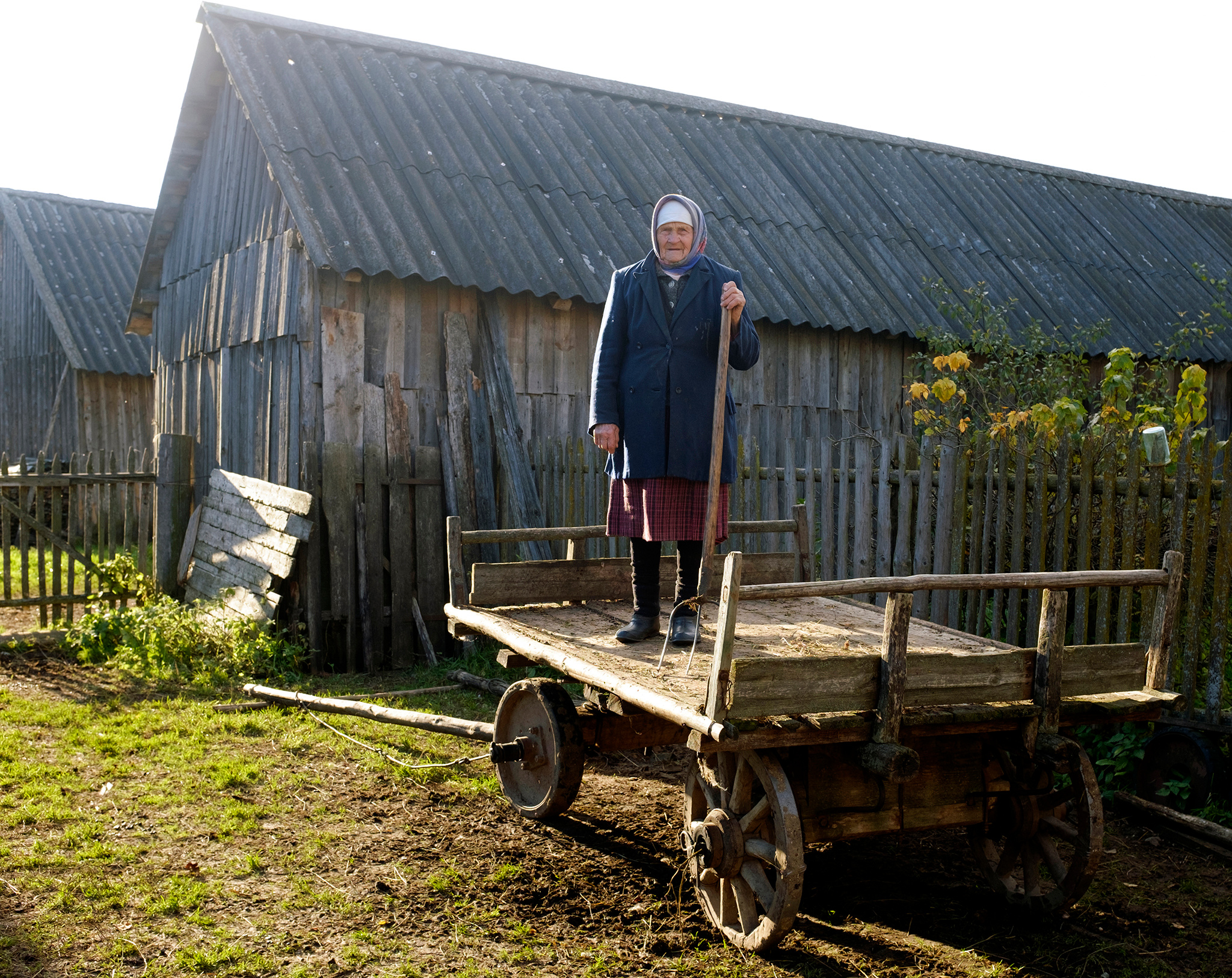
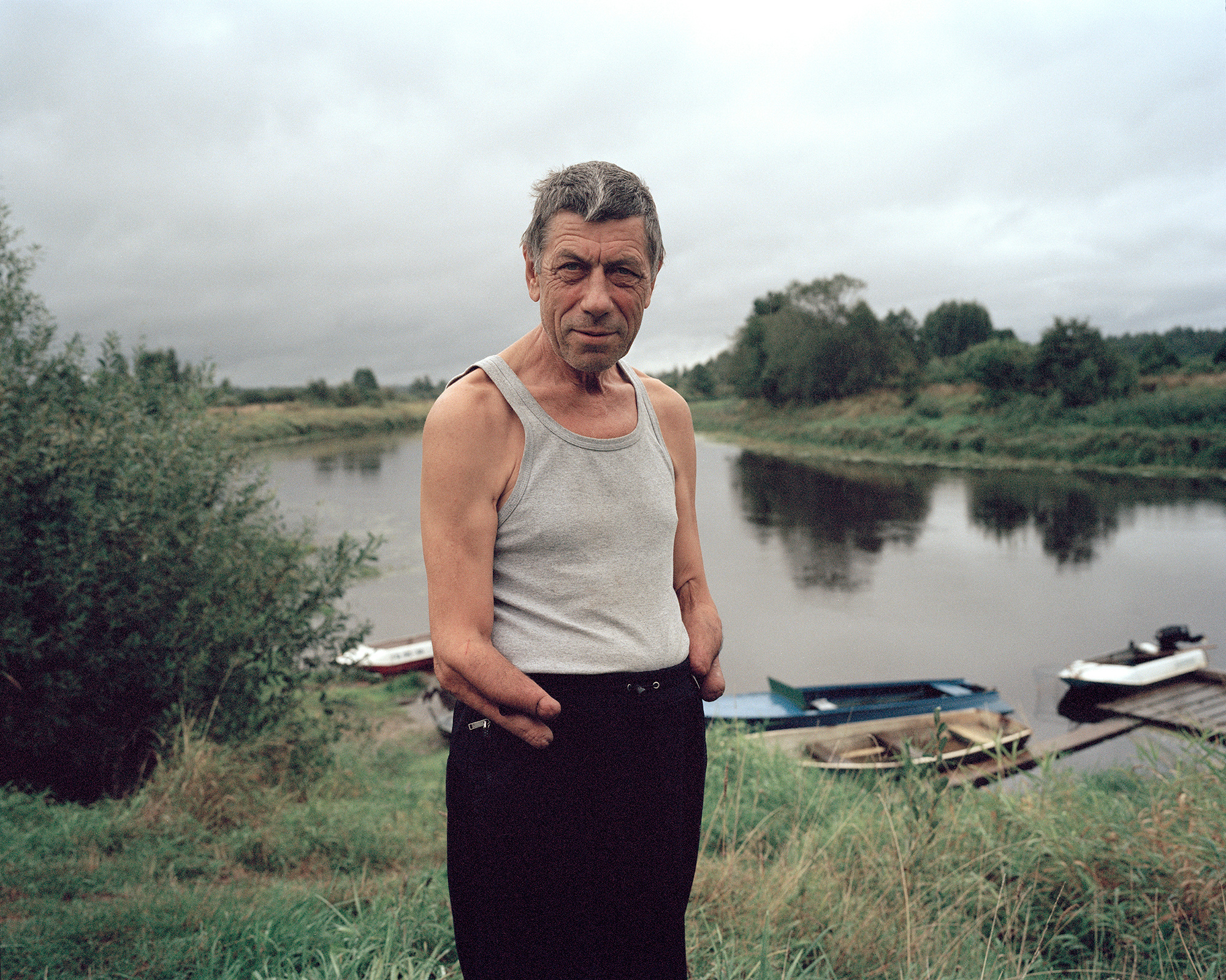
4) Photography is a medium that pushes humanity towards new territories. Your photography, where does it go?
I try with my photography to touch the strings of the human soul, to arouse nostalgia in them for childhood, for bright memories. I don't think my photograph can influence the world in any way, but it can influence a particular person — yes, it can. I believe in it. People write to me about it, after my exhibitions and publications.
5) What is your opinion about photography in Russia?
Photography in modern Russia is developing very rapidly. I don't even have time to follow the new names: Igor Elukov, Alexandra Demenkova, Elena Chernysheva. There are several young talented authors working in different genres. But my favorite photographers are still Emil Gataullin and Oleg Videnin.
News
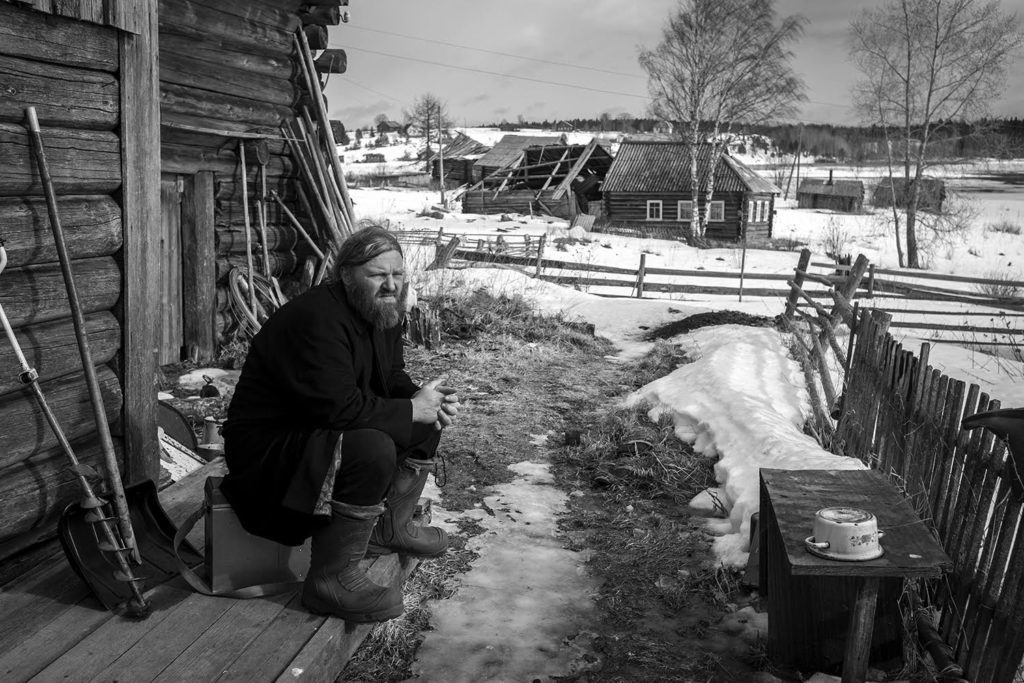
A Cold Wind Blows in Kolodozero: Conversation with Ekaterina Solovieva

The New Yourk Times: Photographing a ‘Punk’ Priest in Rural Russia
